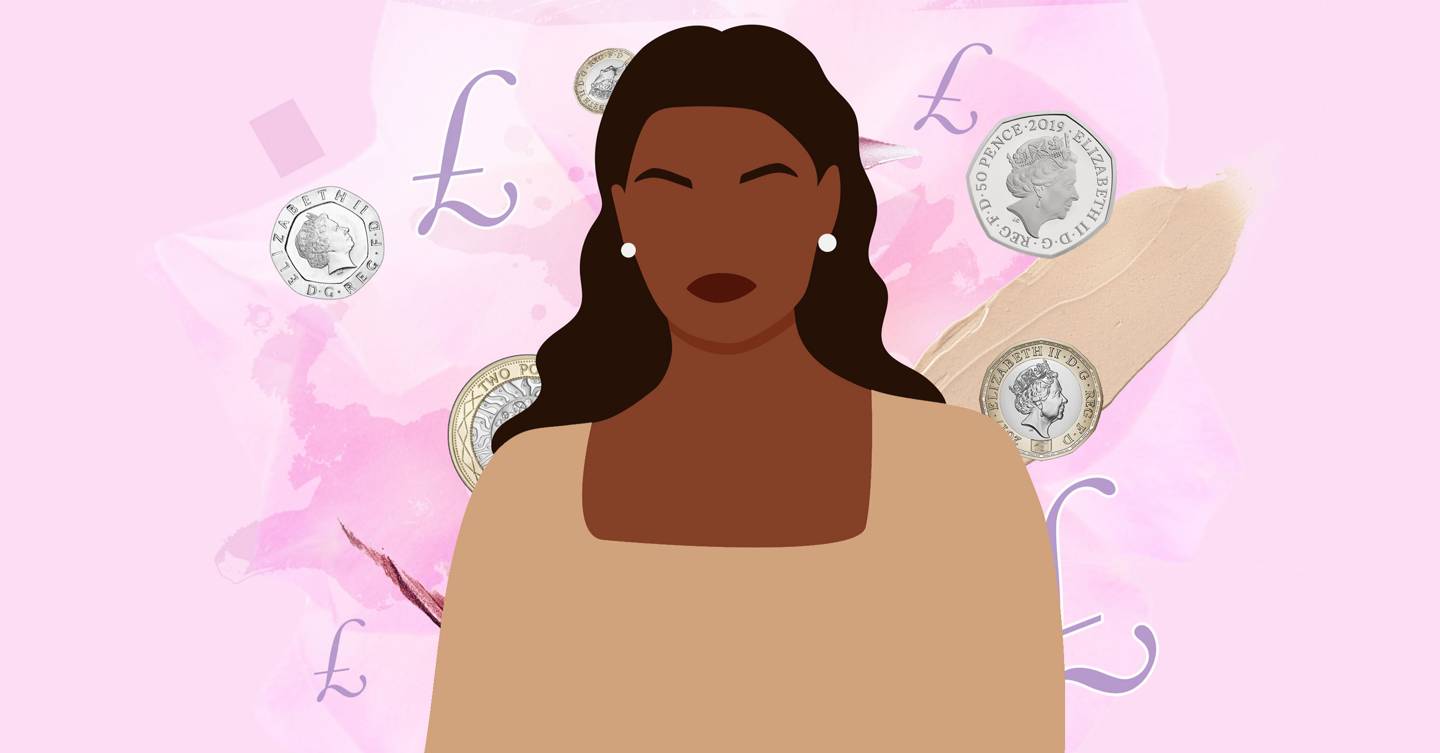
Welcome to Money Matters: GLAMOUR’s weekly dive into the world of finance – your finance. These uncertain times have reminded us just how much understanding our money matters and yet… how little we talk about it and how much it’s shrouded in secrecy.
This stops now.
Keen to break that money taboo, we’re chatting all things personal finance from money saving tips to ISAs and pensions. Each week, a woman in a unique situation will give us an honest breakdown of her finances, and our expert will tell her easy tips on exactly how to tackle it. So, grab a cuppa, take a seat, and let’s talk about money…
Don’t forget to join GLAMOUR’s new Facebook group, Money Matters, for more exclusive finance content, and get in touch with us at moneymatters@condenast.co.uk to submit your own anonymous money diary.
Natalie* is 29 and works as a communications officer in the North East of England. She’s back living with parents after a breakup and worries her dreams of buying a property will be harder to achieve now she’s single. Here’s her money diary.
I live with my parents and younger brother. I had been living with my ex for three years (we were renting a house), before we broke up last year and I moved back in with my family. We all get on pretty well but it’s pretty depressing to be honest – to be nearly 30 and back living with my parents.
I work in communications, I have been in my job for almost five years now. I like it, although I’m thinking of moving as I haven’t had a pay rise in three years and I don’t think there’s much chance of this or career progression where I am.
I’ve got a small amount of savings – I used to have more but the breakup took its toll and around that time I splurged a lot on new clothes and a couple of holidays with friends. I still tend to spend money when I’m feeling down – then I feel guilty so it only makes things worse!
I know I need to get my spending under control and start saving more, but I just feel really hopeless about money and my future, so anything I save doesn’t feel like enough. Affording to buy as a single person seems so much more difficult than for a couple – even small things like sharing a Netflix subscription or splitting food bills make life cheaper for couples. I hate feeling that I need to meet someone new to achieve what I want in life.
MY ACCOUNTS
Current account: £400
Savings account: £1,750 in a cash ISA, £560 in a Monzo savings pot.
MY INCOMINGS
Annual salary: £26,155 pre-tax; £21,449 post-tax
Monthly wage: £2,180 pre-tax; £1,789 post-tax
Any other incoming payments: £0
MY OUTGOINGS
Rent: I give my parents £300 a month
Bills: I pay £35 a month for my phone and £20 for contact lenses. Also about £45 on petrol.
Splurges: I love shopping, I’m always on the lookout for a new dress or pair of shoes. And I’ll often buy skincare products or makeup to cheer myself up.
Weekly budget: Ask me on a Monday and I’ll probably say £100 a week, by Friday this is usually gone out the window.
MY DEBTS
Student debt: £29k left to pay off, it feels like I’ll never manage it.
Car loan: £180 payment per month
MY MONEY THOUGHTS
My worst money habit: Feeling massive guilt every time I spend money, but not having the willpower to stop spending.
My biggest money worry: Student loan interest. And never being able to afford to buy a place of my own.
My financial hopes for the future: To build up my savings and move out of home in the next couple of years.
Current money mood: 💔 🏡 😢
1. Breakup survival
Breakups really are the worst. They knock you off your feet emotionally and then just when you think you’ve got your sh*t together, the financial consequences suddenly become horribly real.
From personal experience, the key to breakup survival is bucket loads of self-compassion. Enough of the spending regrets and holiday splurges, write them off as survival essentials and only look forwards.
2. The future is bright
The second ingredient to breakup survival is self-belief and optimism. All is not lost, you will meet another person (trust me, you’ll be glad this happened one day) and from a financial perspective, things will get better. However, you’re not wrong; the single premium is real. From splitting subscriptions to weddings, life is easier in twos. There’s nothing anyone can do about that, but the key for you will be focusing on what you can control.
3. Regain control
There are two levers you can pull: 1) your spending – cutting back on your outgoings and 2) your income – find a better paying job or a promotion. We can talk about budgets and cutting subscriptions till the cows come home but by far the most effective way to save more is by earning more. With lots of experience under your belt, I would direct your anxieties and fears into something positive: building your career. Take time to polish your LinkedIn, scope out recruiters and get networking. While you’re not sure if progression is possible within your current role, it’s worth asking. You’re in a fantastic position of not needing to move immediately so make sure you do plenty of negotiation and ask recruiters for advice on your market value.
4. Spending & saving
Even with a new job under your belt, getting your spending habits sussed is vitally important. Lifestyle inflation is the sneaky habit of scaling up your spending as your earnings increase. Get into the habit of saving on pay day – set up a standing order to make it happen and if needed, move your savings into a less accessible account. Set yourself a target for what you want to save over 12 months and break it down into monthly chunks.
5. Home help
Buying a house isn’t impossible as a single person but it’s harder without a hefty deposit or the use of government schemes such as Help to Buy. Once you’ve got a decent emergency fund in cash, you could open a Stocks and Shares Lifetime ISA. Invest up to £4,000 a year, pay no tax on any money you make AND get up to £1,000 free from the government. Win win. The money saved can then be put towards a home (under £450,000) or contribute to your retirement.
Alice Tapper is the author and founder of Go Fund Yourself. For more money guidance and tips, follow her @gofundyourself.
This column offers guidance, not financial advice. For personal investment advice, it’s always best to speak with a financial advisor.
*Name has been changed.




